Isn’t it sad that the children who once upon a time believed in fairytales and magic had to be hit by reality and monsters in their heads? And once these children have experienced the disillusionment of life itself they are suddenly called adults, but in reality, they just want to be like Alice, trying to find a way out of their heads and into wonderland. All they want to do is escape.
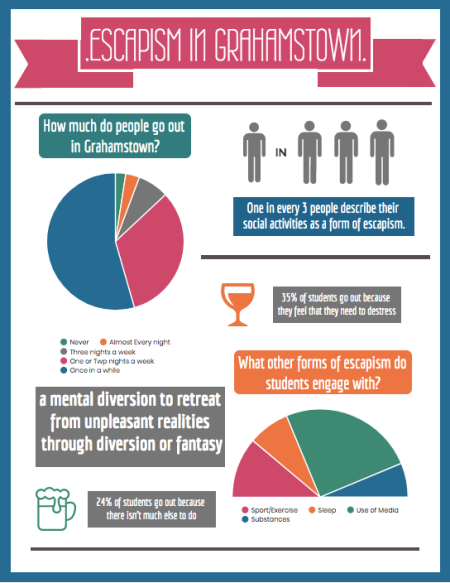 With the hustle and bustle of modern life, escapism has become more and more common in society, especially among young adults. Escapism is often a defence mechanism, allowing individuals to abandon their reality, physically or mentally, in response to the repetitive and unsatisfying actuality. According to clinical psychologist, Marizaan Koen, examples of escapism in students include watching series, browsing Instagram and Facebook, drinking excessive amounts of alcohol, using drugs, overeating and clubbing. Koens adds that although these acts seem harmless independently, they become escapism when “these activities prevent individuals from effectively dealing with their problems.” Many students adopt these practises because the activities are relaxing and Koens states that they can give students the chance to recuperate and restore their energy levels. However, she adds, “it can easily happen that students spend more and more time on these activities, to the point where it prevents them from dealing with reality.”
With the hustle and bustle of modern life, escapism has become more and more common in society, especially among young adults. Escapism is often a defence mechanism, allowing individuals to abandon their reality, physically or mentally, in response to the repetitive and unsatisfying actuality. According to clinical psychologist, Marizaan Koen, examples of escapism in students include watching series, browsing Instagram and Facebook, drinking excessive amounts of alcohol, using drugs, overeating and clubbing. Koens adds that although these acts seem harmless independently, they become escapism when “these activities prevent individuals from effectively dealing with their problems.” Many students adopt these practises because the activities are relaxing and Koens states that they can give students the chance to recuperate and restore their energy levels. However, she adds, “it can easily happen that students spend more and more time on these activities, to the point where it prevents them from dealing with reality.”
Think of escapism like salt or sugar, you can sprinkle it over your life to make it better, but too much will ruin the whole dish. This can cause problems with work, damage personal relationships and your productivity can also take a nosedive.
 Some do drugs, others go for a run, but at the end of the day, many students are searching for a way to be completely out of touch with reality. The question is why is this issue so prevalent in the UCKAR society? There are various factors which contribute the development and maintenance of escapism, including biological, psychological, social and environmental factors. In an online survey, it came to light that approximately 24% of students say they go out because there isn’t much else to do in a small town like Grahamstown. Another 35% of students want to go out to destress and forget about reality for a bit. These were the two most given reasons for going out in Grahamstown, using this as a type of a barometer it is possible to hypothesise that students mainly go out to destress, or as a pure form of entertainment in a small town with few other possibilities for fun.
Some do drugs, others go for a run, but at the end of the day, many students are searching for a way to be completely out of touch with reality. The question is why is this issue so prevalent in the UCKAR society? There are various factors which contribute the development and maintenance of escapism, including biological, psychological, social and environmental factors. In an online survey, it came to light that approximately 24% of students say they go out because there isn’t much else to do in a small town like Grahamstown. Another 35% of students want to go out to destress and forget about reality for a bit. These were the two most given reasons for going out in Grahamstown, using this as a type of a barometer it is possible to hypothesise that students mainly go out to destress, or as a pure form of entertainment in a small town with few other possibilities for fun.
There are various ways to deal with escapism and developing healthy ways to deal with your reality. It’s easy to avoid reality, but impossible to avoid the consequences of reality. It’s important to put your hands back on the controller and stop escaping reality. This is often done by identifying what you’re trying to avoid, why and how to change it.
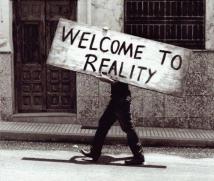 Some say that people build themselves a world of magic because humans have lost the magic from their childhood and now live dull, tragic lives, that people are permanently thinking about escaping, this has become the monster in your head. We escape to bring back the fairytales from our youth. Perhaps instead of trying to escape to fairytales we should dream improbable dreams, follow our hearts and create our own little version of a fairytale. Let me ask you this, what are you doing online reading this article? Are you escaping?
Some say that people build themselves a world of magic because humans have lost the magic from their childhood and now live dull, tragic lives, that people are permanently thinking about escaping, this has become the monster in your head. We escape to bring back the fairytales from our youth. Perhaps instead of trying to escape to fairytales we should dream improbable dreams, follow our hearts and create our own little version of a fairytale. Let me ask you this, what are you doing online reading this article? Are you escaping?
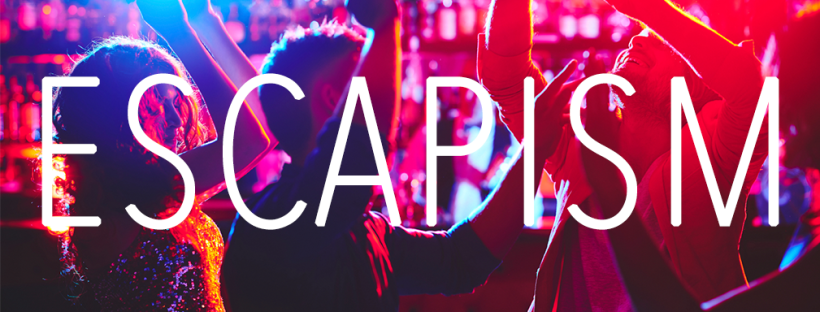
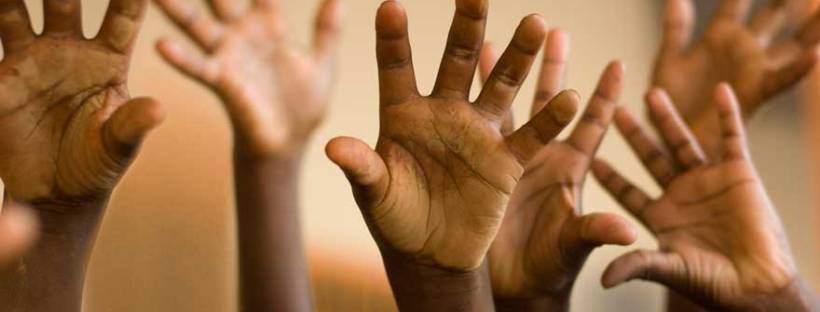
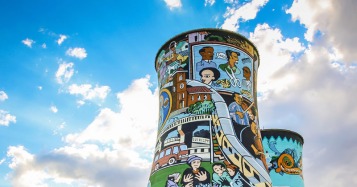 I am so grateful we have arrived in Soweto, I can breathe. I had tried to occupy my mind with how excited I was to see my kids at the African Feeding Scheme but this bus could even make a cat feel claustrophobic. We stop. We unpack, as per usual. Today is the third time I have come here to mingle with lives that are very different from my own. We unpack the fruit and make sandwiches. My heart squeezes because I love all the children, all the little boys that tackled me down and all the little girls that circle around me to braid my very strange yellow hair.
I am so grateful we have arrived in Soweto, I can breathe. I had tried to occupy my mind with how excited I was to see my kids at the African Feeding Scheme but this bus could even make a cat feel claustrophobic. We stop. We unpack, as per usual. Today is the third time I have come here to mingle with lives that are very different from my own. We unpack the fruit and make sandwiches. My heart squeezes because I love all the children, all the little boys that tackled me down and all the little girls that circle around me to braid my very strange yellow hair.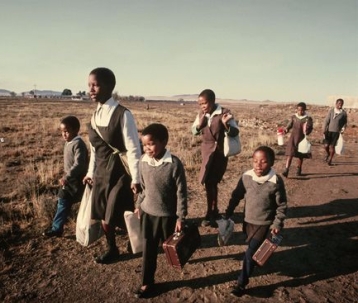 She saw the toys. She was elated and started walking towards them, but then, she saw me. She stopped. I did not understand, she looked at me with a looked I have never seen before, her eyes
She saw the toys. She was elated and started walking towards them, but then, she saw me. She stopped. I did not understand, she looked at me with a looked I have never seen before, her eyes 
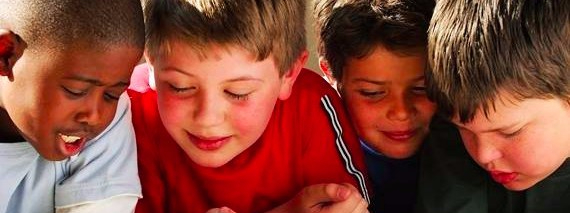
 Since the start of the Intsomi program in 2015, as part of the Vice-Chancellor’s Education Initiative, this program has changed the lives of over a hundred families in the Grahamstown area. It is part of the Rhodes University Parent Engagement Program and aims to empower the learners of public schools in the area as well as their parents. The program enables parents to read age and language appropriate books, which are provided by the Rhodes University Community Engagement (RUCE) office, to their children.
Since the start of the Intsomi program in 2015, as part of the Vice-Chancellor’s Education Initiative, this program has changed the lives of over a hundred families in the Grahamstown area. It is part of the Rhodes University Parent Engagement Program and aims to empower the learners of public schools in the area as well as their parents. The program enables parents to read age and language appropriate books, which are provided by the Rhodes University Community Engagement (RUCE) office, to their children. 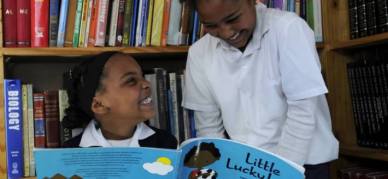 Parents involved in the program described, at Wednesday’s press conference, how the program has improved both the reading and writing of their children. Many also mentioned a definite improvement in the parent-child relationship and stronger family bonds that have developed. The program has not only improved the literacy education of children in Grahamstown, but has promoted the idea of reading for pleasure, enjoyment and not only for academic purposes. Children
Parents involved in the program described, at Wednesday’s press conference, how the program has improved both the reading and writing of their children. Many also mentioned a definite improvement in the parent-child relationship and stronger family bonds that have developed. The program has not only improved the literacy education of children in Grahamstown, but has promoted the idea of reading for pleasure, enjoyment and not only for academic purposes. Children 
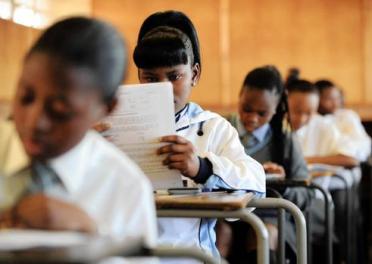 Last year recorded some very interesting results in the way of the matriculants’ respective pass rates from both government and IEB schools. The 2016 pass rate for private schools was calculated to be 98.67%, up from 2015’s 98.30%, and calculated from “11 022 full-time and 703 part-time candidates from 237 examination venues” across Southern Africa (Staff Reporter, 2016). On the other hand, the government schools’ pass rates were said to be 72.5%, up from 70.7% the previous year, recorded from over 80 000 students that wrote (Staff Writer, 2017). One should take into account that the government’s pass rate being so low is due to numerous mitigating factors. Aside from teacher absenteeism, many students either drop out, need to travel vast distances to get to school every day (which may be too much for them to cope with on certain days) and/ or bunk classes regularly; all of which negatively impact their preparation for exams. In total; 93% of the distribution of learners in the South African education system were public (or DBE) schools, while 4% were private (or IEB) schools (Department of Basic Education, 2015).
Last year recorded some very interesting results in the way of the matriculants’ respective pass rates from both government and IEB schools. The 2016 pass rate for private schools was calculated to be 98.67%, up from 2015’s 98.30%, and calculated from “11 022 full-time and 703 part-time candidates from 237 examination venues” across Southern Africa (Staff Reporter, 2016). On the other hand, the government schools’ pass rates were said to be 72.5%, up from 70.7% the previous year, recorded from over 80 000 students that wrote (Staff Writer, 2017). One should take into account that the government’s pass rate being so low is due to numerous mitigating factors. Aside from teacher absenteeism, many students either drop out, need to travel vast distances to get to school every day (which may be too much for them to cope with on certain days) and/ or bunk classes regularly; all of which negatively impact their preparation for exams. In total; 93% of the distribution of learners in the South African education system were public (or DBE) schools, while 4% were private (or IEB) schools (Department of Basic Education, 2015). Rod Amner, a JMS lecturer at RhodesUniversity, weighed in on the debate with regards to the results of government and IEB students’ respective results and performances at university. “The IEB is obviously an international benchmark, and the standards there are more demanding – of course, the majority of them come from privileged backgrounds. IEB students are better prepared for university because of the nature of the schools that they came from.” Amner went on to stress that merely attending an IEB school won’t necessarily make for quality results; instead underlining the unique characteristics of respective individuals with regards to sound performance. “One of the things I’ve heard is that not all IEB graduates fly at university. There are so many variables involved – personality, work ethic – and if students begin to struggle with their work they battle to recover by themselves. Another point is that, while the standards may not be as high at government schools, many students feel more comfortable there (in a less results-driven environment). Students are also exposed to a greater diversity of people at government schools, which aids them in climatizing to life at university.”
Rod Amner, a JMS lecturer at RhodesUniversity, weighed in on the debate with regards to the results of government and IEB students’ respective results and performances at university. “The IEB is obviously an international benchmark, and the standards there are more demanding – of course, the majority of them come from privileged backgrounds. IEB students are better prepared for university because of the nature of the schools that they came from.” Amner went on to stress that merely attending an IEB school won’t necessarily make for quality results; instead underlining the unique characteristics of respective individuals with regards to sound performance. “One of the things I’ve heard is that not all IEB graduates fly at university. There are so many variables involved – personality, work ethic – and if students begin to struggle with their work they battle to recover by themselves. Another point is that, while the standards may not be as high at government schools, many students feel more comfortable there (in a less results-driven environment). Students are also exposed to a greater diversity of people at government schools, which aids them in climatizing to life at university.”
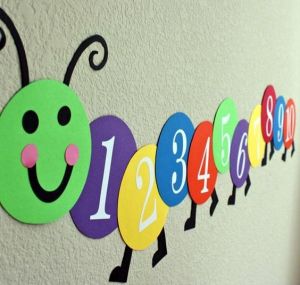 Education within South Africa has always been a sensitive topic. Since the Apartheid era, it has always involved political motivation and failed to provide children with sufficient education. This year a total of R23 408 620 has been budgeted for schooling in South Africa. The focus of this money is to improve the schools with regards to infrastructure, the curriculum and the pass rate for matric students. Balancing and prioritising this money is a tricky business, and ensuring that each school receives a fair amount is very challenging.
Education within South Africa has always been a sensitive topic. Since the Apartheid era, it has always involved political motivation and failed to provide children with sufficient education. This year a total of R23 408 620 has been budgeted for schooling in South Africa. The focus of this money is to improve the schools with regards to infrastructure, the curriculum and the pass rate for matric students. Balancing and prioritising this money is a tricky business, and ensuring that each school receives a fair amount is very challenging.  There is a difference in results between fee-paying and non-fee paying schools within Grahamstown. There is a juxtaposition between schooling in Grahamstown. The one-half is wealthy private schools and the other half is non-fee paying school. Fee paying schools achieve a significantly higher pass rate in the matric examination than other non-fee paying school. Amongst other things, this shows the significance of resources and the impact they have on a child’s education.
There is a difference in results between fee-paying and non-fee paying schools within Grahamstown. There is a juxtaposition between schooling in Grahamstown. The one-half is wealthy private schools and the other half is non-fee paying school. Fee paying schools achieve a significantly higher pass rate in the matric examination than other non-fee paying school. Amongst other things, this shows the significance of resources and the impact they have on a child’s education. 
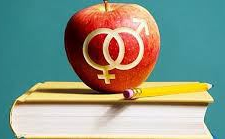 Women are victims. Men are only predators. Sex is shameful and damaging. Only heterosexuality is acceptable. Gender is a black and white issue. These norms are what many learners are taking away from sexual education classes, that’s if they’re actually paying attention and not giggling about awkward images in textbooks.What masquerades as sexual education in South Africa is in actual fact not education at all. Many young South Africans are left with inadequate teaching about sexuality, gender and sex and are then vulnerable to abuse, exploitation, unwanted pregnancies or sexually transmitted diseases.
Women are victims. Men are only predators. Sex is shameful and damaging. Only heterosexuality is acceptable. Gender is a black and white issue. These norms are what many learners are taking away from sexual education classes, that’s if they’re actually paying attention and not giggling about awkward images in textbooks.What masquerades as sexual education in South Africa is in actual fact not education at all. Many young South Africans are left with inadequate teaching about sexuality, gender and sex and are then vulnerable to abuse, exploitation, unwanted pregnancies or sexually transmitted diseases. 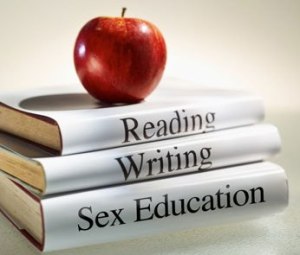 Many teenagers are uncomfortable when it comes to talking about sex because in classrooms there is a moral slant to this issue. Issues around sex, gender and sexuality are made out to be awkward instead of completely natural. These issues are often given the same treatment at home. Many parents are apprehensive around conversations about sexuality or sex because they believe that this will encourage them to have sex.
Many teenagers are uncomfortable when it comes to talking about sex because in classrooms there is a moral slant to this issue. Issues around sex, gender and sexuality are made out to be awkward instead of completely natural. These issues are often given the same treatment at home. Many parents are apprehensive around conversations about sexuality or sex because they believe that this will encourage them to have sex. South Africa’s sexual violence rates are among the highest in the world. Sexual violence refers to the use of force or manipulation to get someone to engage in an unwanted sexual activity. Research suggests that perhaps sexual education could decrease instances of sexual violence in South Africa.
South Africa’s sexual violence rates are among the highest in the world. Sexual violence refers to the use of force or manipulation to get someone to engage in an unwanted sexual activity. Research suggests that perhaps sexual education could decrease instances of sexual violence in South Africa.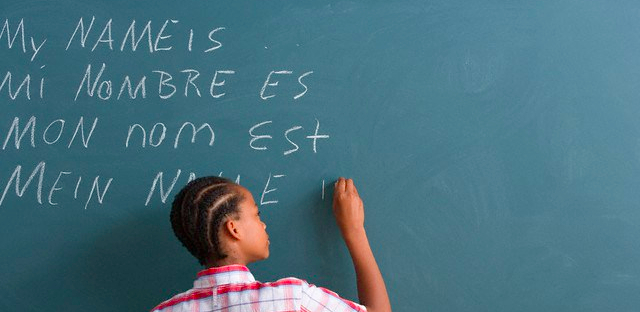
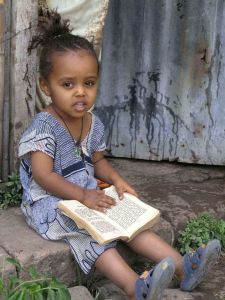 Like many public secondary schools in the Eastern Cape Province, Grahamstown public schools have continued to perform badly. Statistics has proven that in 2013, the public schools in the district performed third worst in the province in matric exams. However, in the following year
Like many public secondary schools in the Eastern Cape Province, Grahamstown public schools have continued to perform badly. Statistics has proven that in 2013, the public schools in the district performed third worst in the province in matric exams. However, in the following year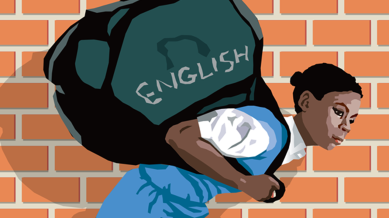 Tolweni Senior Secondary school in rural Mount Fere being one of the schools which did not make it on any government or corporate list has more than 1 300 pupils, but 24 teachers. Students are overcrowded in the mud classrooms with inadequate furniture, text books, no electricity nor running water and bad toilets. During community engagement I took part in at Ntsika secondary school I interviewed a grade 12 pupil to find out from her opinion, what the reason was behind poor performance. The pupil, who did not want to be mentioned, informed me that they are taught all subjects in their native language (isiXhosa) of which all subject examination except the home language come in English hence they tend to fail because they do not understand the English. In the English latest Educator’s Association Professor Wright said, ‘’where South African people come face to face with their own character and willingness to work together to construct a progressive, non-racial, non-sexiest democracy that has the capabilities and skills to create a more equal and better resourced society.
Tolweni Senior Secondary school in rural Mount Fere being one of the schools which did not make it on any government or corporate list has more than 1 300 pupils, but 24 teachers. Students are overcrowded in the mud classrooms with inadequate furniture, text books, no electricity nor running water and bad toilets. During community engagement I took part in at Ntsika secondary school I interviewed a grade 12 pupil to find out from her opinion, what the reason was behind poor performance. The pupil, who did not want to be mentioned, informed me that they are taught all subjects in their native language (isiXhosa) of which all subject examination except the home language come in English hence they tend to fail because they do not understand the English. In the English latest Educator’s Association Professor Wright said, ‘’where South African people come face to face with their own character and willingness to work together to construct a progressive, non-racial, non-sexiest democracy that has the capabilities and skills to create a more equal and better resourced society.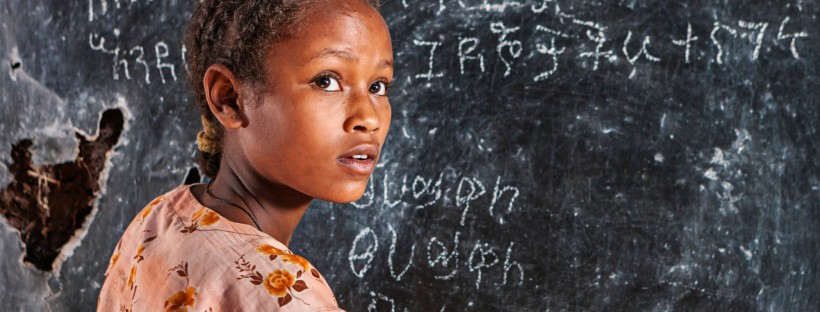
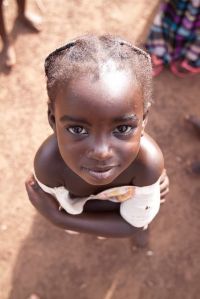 There are many reasons as to why a lot of females in South Africa are uneducated. These reasons include poverty, gender inequality in households, safety and security as well as due to the impact of HIV and AIDS on the community.
There are many reasons as to why a lot of females in South Africa are uneducated. These reasons include poverty, gender inequality in households, safety and security as well as due to the impact of HIV and AIDS on the community. 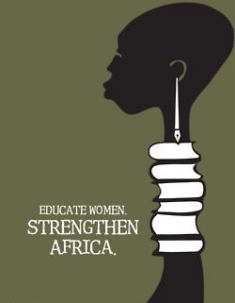 Although the factor of poverty is highlighted in this article, there are other key challenges to girls’ education. Other challenges include gender inequality, which correlates to culture. In many African cultures, boys are seen as superior to girls based on socialisation. In some poor families, parents will choose to send their sons to school, as they believe that the education would be of a better use for boys.
Although the factor of poverty is highlighted in this article, there are other key challenges to girls’ education. Other challenges include gender inequality, which correlates to culture. In many African cultures, boys are seen as superior to girls based on socialisation. In some poor families, parents will choose to send their sons to school, as they believe that the education would be of a better use for boys.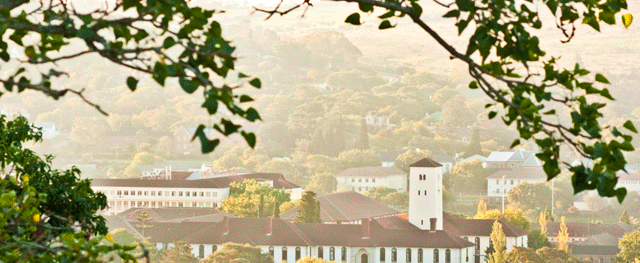
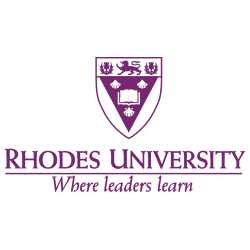 Believe it or not, this is no new predicament that Rhodes has found itself in but has been an accumulating problem for almost a decade.The main reoccurring problem for many years now would be due to the fact that Rhodes is the smallest public university in South Africa with only 7000 students. This means Rhodes receives less than a fifth of student fee’s that the University of Cape Town (UCT) receives yet Rhodes expenditure is almost a third of that of UCT which already demonstrates the significant economic margin and disadvantage Rhodes faces. Due to Rhodes size and location, it also does not receive the extent of business endowments that big universities in big cities such as WITs do.
Believe it or not, this is no new predicament that Rhodes has found itself in but has been an accumulating problem for almost a decade.The main reoccurring problem for many years now would be due to the fact that Rhodes is the smallest public university in South Africa with only 7000 students. This means Rhodes receives less than a fifth of student fee’s that the University of Cape Town (UCT) receives yet Rhodes expenditure is almost a third of that of UCT which already demonstrates the significant economic margin and disadvantage Rhodes faces. Due to Rhodes size and location, it also does not receive the extent of business endowments that big universities in big cities such as WITs do.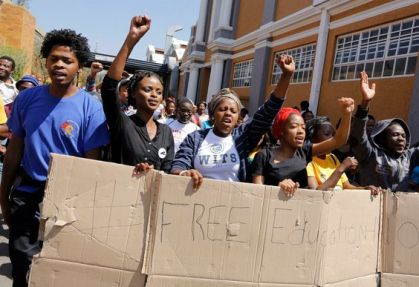 Throughout 2015, the students of South Africa united to fight against the escalating fee’s in tertiary education which lead to the #feesmustfall
Throughout 2015, the students of South Africa united to fight against the escalating fee’s in tertiary education which lead to the #feesmustfall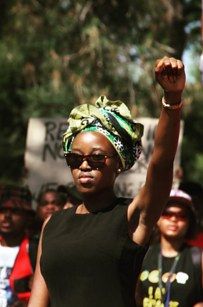 Unfortunately this was not the end of the pressures that Rhodes would endure. The most current issue hit our fragile university like a brick wall and once again Rhodes was faced with a double edged sword — just another issue that had been simmering for years , the issue of our academic staff and support staff being paid one of the lowest incomes amongst public institutions in the country. For the first three weeks of the second term of 2017, the support staff and even academic staff engaged in a go-slow after a deadlock between the unions and management during negotiations. It is truly horrific the money which the staff are expected to live off of , the problem lies that the university literally has no capital left in which they can afford to give them a major or even minor increase. Rhodes has offered the unions a 5% increase, of which the National Tertiary Education Union accepted , which will already cost the university an additional R20 million (1% increase = R4 million). However it does not stop there as the other union, National Health Eduction and Allied Workers Union (NHEAWU) who embarked on an illegal strike on Wednesday the 10th of May, will not accept anything less than a 7,5% increase and after interviewing one of the strikers from NHEAWU (whom also wanted to stay anonymous) she said “Our concern is here at Rhodes, we are doing more work but less pay, more work but we are paid peanuts. We don’t want no grade one pay, we want grade four pay” and “We do four persons work in one person, and now we must suffer for our rights”. As devastating as it is, this is no longer a case of only taking a humanitarian stance and looking out for the individuals as was previously done with students. If Rhodes accepts these terms along with all the other arising problems, along with the fact that South Africa has now reached junk status, will this fine 113 year old university just collapse or will management come up with a plan to save Rhodes and the town that cannot survive without it .
Unfortunately this was not the end of the pressures that Rhodes would endure. The most current issue hit our fragile university like a brick wall and once again Rhodes was faced with a double edged sword — just another issue that had been simmering for years , the issue of our academic staff and support staff being paid one of the lowest incomes amongst public institutions in the country. For the first three weeks of the second term of 2017, the support staff and even academic staff engaged in a go-slow after a deadlock between the unions and management during negotiations. It is truly horrific the money which the staff are expected to live off of , the problem lies that the university literally has no capital left in which they can afford to give them a major or even minor increase. Rhodes has offered the unions a 5% increase, of which the National Tertiary Education Union accepted , which will already cost the university an additional R20 million (1% increase = R4 million). However it does not stop there as the other union, National Health Eduction and Allied Workers Union (NHEAWU) who embarked on an illegal strike on Wednesday the 10th of May, will not accept anything less than a 7,5% increase and after interviewing one of the strikers from NHEAWU (whom also wanted to stay anonymous) she said “Our concern is here at Rhodes, we are doing more work but less pay, more work but we are paid peanuts. We don’t want no grade one pay, we want grade four pay” and “We do four persons work in one person, and now we must suffer for our rights”. As devastating as it is, this is no longer a case of only taking a humanitarian stance and looking out for the individuals as was previously done with students. If Rhodes accepts these terms along with all the other arising problems, along with the fact that South Africa has now reached junk status, will this fine 113 year old university just collapse or will management come up with a plan to save Rhodes and the town that cannot survive without it .